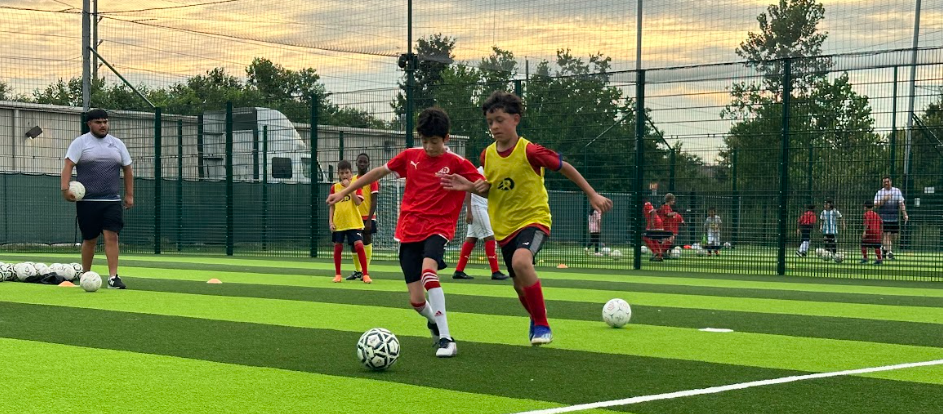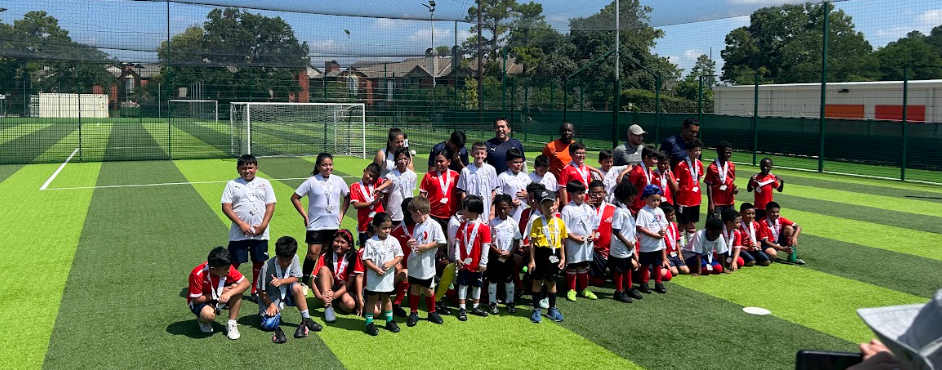The Soccer Player’s Journal: How Writing Can Elevate Your Game
Why Every Soccer Player Should Keep a Journal
As athletes, we often focus on physical training—drills, conditioning, and tactics—but the mental side of the game is just as crucial. Keeping a soccer journal helps you track progress, reflect on challenges, and stay present in your development. Whether you're preparing for tryouts, overcoming self-doubt, or building team chemistry, writing about your experiences sharpens your mindset and enhances performance.
At Revolution Soccer Complex, we encourage players at all levels to adopt journaling as a tool for growth. Here’s how it can transform your game—both on and off the field.

1. Preparing for Tryouts: Mental & Physical Readiness
Prompt: Write about how you prepare mentally and physically for tryouts.
Tryouts can be nerve-wracking, but a journal helps you organize your thoughts and set clear goals. Documenting your training regimen—speed drills, endurance work, and technical practice—keeps you accountable. Mentally, jotting down visualization exercises, positive affirmations, and past successes builds confidence. Reflecting on your preparation ensures you step onto the field with focus and determination.
2. Overcoming Doubt: Turning Weakness into Strength
Prompt: Reflect on a moment you felt unsure on the field and how you overcame it.
Every player faces moments of hesitation—maybe a missed pass or a defensive error. Writing about these experiences helps you analyze what went wrong and how you adjusted. Did you regain composure by focusing on the next play? Did a teammate’s encouragement help? Recognizing these turning points reinforces resilience, so when doubt creeps in again, you’re ready.

3. Game Day Routine: Staying Locked In
Prompt: Describe your routine on game day and how it helps you focus.
Consistency is key in soccer. Use your journal to refine a pre-game ritual—whether it’s dynamic stretching, listening to a specific playlist, or reviewing tactical notes. Writing about this routine helps you identify what truly puts you in the right headspace. Over time, you’ll develop a personalized system that primes you for peak performance.

4. Building Team Chemistry: Connecting with New Players
Prompt: Journal about how you introduce yourself and make connections in a new team.
Joining a new team can be intimidating, especially for adult players. Documenting interactions—like icebreaker conversations or on-field communication—helps you become more intentional about bonding. Reflecting on these moments can reveal how small gestures (e.g., cheering for a teammate or asking about their playing style) foster trust and camaraderie.
5. Learning from Loss: Growth Through Adversity
Prompt: Write about a loss that was particularly hard and what you learned from it.
Defeats sting, but they’re also powerful lessons. Writing about a tough loss helps you process emotions and extract takeaways. Did poor communication cost the game? Did fatigue set in? By dissecting these moments, you turn setbacks into fuel for improvement—both individually and as a team.

The Mental Health Benefits of Journaling
Beyond soccer skills, journaling promotes mindfulness and emotional balance. It:
✅ Reduces stress by releasing pent-up thoughts.
✅ Improves self-awareness, helping you recognize patterns in performance.
✅ Keeps you present, preventing overthinking past mistakes or future pressures.
For adult players juggling work, family, and soccer, a journal becomes a personal coach—guiding reflection and growth.
.png)
.png)
